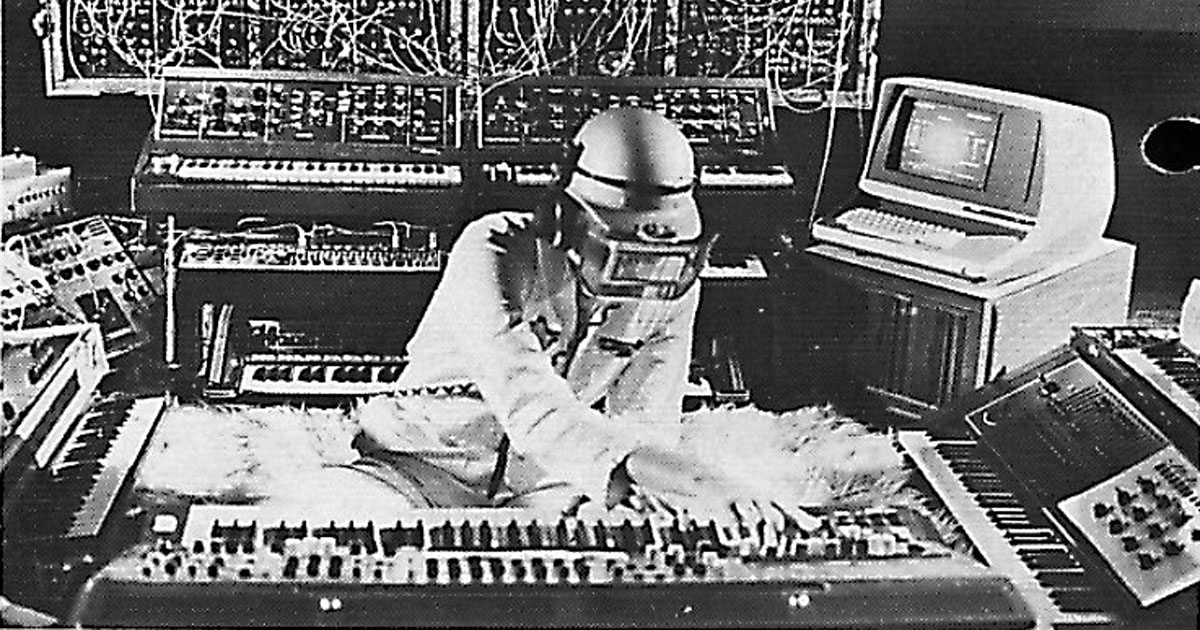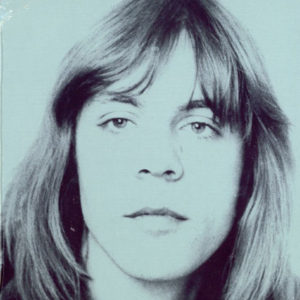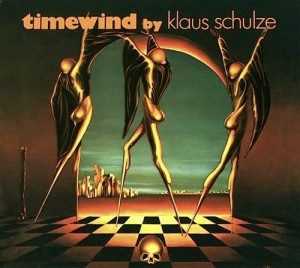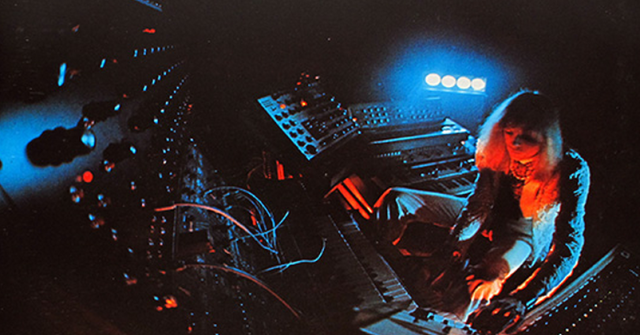A Titan of Electronic Music, Klaus Schulze, Gone at 74.
 Klaus Schulze
Klaus Schulze
August 4, 1947 –April 26, 2022
A Titan of Electronic Music has left the planet. Klaus Schulze, the soul of German electronic music gone, April 26 at the age of 74.
This was posted on his Facebook Page:
Dear Fans,
In deepest sorrow we have to inform you that Klaus has passed away yesterday on April 26, 2022 at the age of 74 after a long disease but all of a sudden.
He leaves behind a huge musical legacy and is survived by his wife, two sons and four grandchildren.
In his name and in the name of the family we would like to thank you for your loyalty and support over all these years – it has meant a lot to him!
His music will remain, and our memories…
There’s a lot more to write about him as person and artist but he probably would have told us: nuff said!
According to his wishes we will bid farewell to him in the closest family circle. You know him and what he always said: my music is important, not my person…
Maximilian Schulze
also in the name of the family and the Klaus Schulze-Team
I have dreaded this event for a long time. I knew that Klaus had been ill, but I thought he was on the mend. He’d also just released a new album, Deus Arrakis.
 Klaus Schulze was part of the original genesis of Echoes and was voted as one of the 30 Icons of Echoes. The albums he recorded in the 1970s and early 80s reside at the core of music experiences for myself and the central Echoes staff. Albums like Moondawn, Timewind and X, and more provided the soundtrack for many an imaginary movie during those years. There was something about the pulsing sequencers, free form, note bending Moog solos, and spiraling, Escher-like architecture that spoke of a world outside of conventional rock or classical music. I remember synthesist Mark Shreeve of Redshift describing the 1977 album, Mirage, as if it had “formed out of thin air, untouched by human hands.” Klaus’s music had that transcendental power, as if it came from somewhere beyond this plane of existence.”
Klaus Schulze was part of the original genesis of Echoes and was voted as one of the 30 Icons of Echoes. The albums he recorded in the 1970s and early 80s reside at the core of music experiences for myself and the central Echoes staff. Albums like Moondawn, Timewind and X, and more provided the soundtrack for many an imaginary movie during those years. There was something about the pulsing sequencers, free form, note bending Moog solos, and spiraling, Escher-like architecture that spoke of a world outside of conventional rock or classical music. I remember synthesist Mark Shreeve of Redshift describing the 1977 album, Mirage, as if it had “formed out of thin air, untouched by human hands.” Klaus’s music had that transcendental power, as if it came from somewhere beyond this plane of existence.”
Klaus studied classical guitar in his youth, but rock and psychedelic music soon drew him in. First he began playing drums recording free-form music with Psy Free. He teamed up with Edgar Froese and Tangerine Dream and played on their debut album, Electronic Meditation. Then he jumped to Manuel Göttsching’s Ash Ra Tempel, another group creating in the psychedelic vein with long, free-form improvisations, like the Grateful Dead in space.
Along with Tangerine Dream’s Zeit, released the same month, Klaus essentially created modern drone zone and ambient music with his 1972 debut recording, Irrlicht, or Will-o’-the-wisp, playing a modified and totally distorted electric organ over an orchestral rehearsal track he had recorded. It was subtitled Quadrophonische Symphonie für Orchester und E-Maschinen (Quadrophonic Symphony for Orchestra and Electronic Machine).
His second album was a double LP, Cyborg, released in 1973. Equally floating, Klaus added a VCS3 Synthesizer to his sound.
 But it is a trio of mid-1970s albums that really flipped the switch for Klaus’s career as well as electronic music: Picture Music, Timewind and Moondawn. These albums introduced the particular sequencer style that became known as the Berlin School. It was marked by a driving rhythmic sound, like giant rubber bands twanged in space. Over these Klaus would lay in synthesizer pads, free-form Moog solos, and swooshing sound effects. The music on all these albums took up an entire side, a mode that Klaus would work in for most of his recordings. This Berlin School would have profound influences shaping pop music like Donna Summer’s “I Feel Love”, produced by Giorgio Moroder and then in the 1990s, the emergence of Techno.
But it is a trio of mid-1970s albums that really flipped the switch for Klaus’s career as well as electronic music: Picture Music, Timewind and Moondawn. These albums introduced the particular sequencer style that became known as the Berlin School. It was marked by a driving rhythmic sound, like giant rubber bands twanged in space. Over these Klaus would lay in synthesizer pads, free-form Moog solos, and swooshing sound effects. The music on all these albums took up an entire side, a mode that Klaus would work in for most of his recordings. This Berlin School would have profound influences shaping pop music like Donna Summer’s “I Feel Love”, produced by Giorgio Moroder and then in the 1990s, the emergence of Techno.
Klaus Schulze had his heroes and he paid tribute to many of them on his album X, his tenth recording, released in 1978. Among them were Richard Wagner and Frank Herbert, author of Dune. Hans Zimmer would sample Klaus’s track, “Frank Herbert” for his piece, “Grains of Sand” from the Dune Sketchbook release.
Klaus was a quick adopter of new technology employing all manner of digital synthesizers that came in throughout the 1980s. That was also a decade where psychedelics gave way to cocaine. While Klaus was viewed as a cosmic explorer, he was very much human; a garrulous guy with a corny sense of humor full of bad puns and capable of making human mistakes. Klaus became addicted and it affected his music badly and even he admitted that alcohol and drugs made his music heavier and more turgid. Many of us began drifting away even as Schulze began churning out more and more music. There was the archival 10 CD Silver Edition in 1993, followed by the 10 CD Historic Edition in 1995 and the 25-disc box, Jubilee Edition. Schulze seemed intent on releasing every squiggle, bleep and fart he’d ever committed to disc. To his credit, he also continued to explore with form and technology, heading into experimental directions while his contemporaries desperately tried to sell out.
 He collaborated with many artists over the years, notably Arthur Brown (“Fire”), ex-Santana drummer Michael Shrieve and in the mid 2010s, Dead Can Dance singer Lisa Gerard. In 1976 he was part of Japanese composer Stomu Yamashta’s Go which included Al DiMeola, Stevie Winwood, Michael Shrieve and Junior Marvin.
He collaborated with many artists over the years, notably Arthur Brown (“Fire”), ex-Santana drummer Michael Shrieve and in the mid 2010s, Dead Can Dance singer Lisa Gerard. In 1976 he was part of Japanese composer Stomu Yamashta’s Go which included Al DiMeola, Stevie Winwood, Michael Shrieve and Junior Marvin.
In recent years, I’ve found myself returning to Klaus Schulze like a parishioner who has left the flock. Most all of his catalog was rereleased, much of it for the first time ever in the U.S., in deluxe, nicely packaged editions. Despite failing to remaster the material for contemporary audio standards, Klaus’s music still holds up and the mystery and spectacle of Moondawn, Picture Music, Mirage and Trancefer still remains. Silhouettes, his last proper album, before Deus Arrakis, showed he still had the creative spark.
I’d been dreading this day for years, hearing that Klaus had been ill off and on. It was only a few days ago that I interviewed Steve Roach about the impact of Klaus’s 1975 album, Timewind for our forthcoming “Flipping the Switch” series.
Everyone here at Echoes is heartbroken today. But Klaus Schulze’s music still puts us into a state of awe and possibility. Klaus Schulze gone at 74 on April 26, 2022.
Tomorrow night, Thursday, April 28, will be an All Klaus Schulze show.
Hear our profile of Klaus Schulze from the Echoes Podast.
FIVE ESSENTIAL KLAUS SCHULZE CDs
Timewind
Body Love
Mirage
X
Trancefer

“Schulze seemed intent on releasing every squiggle, bleep and fart he’d ever committed to disc.” – This (ahem) “witticism” was neither funny nor clever when you first published it in 2017, and today- of all days- is in exceptionally poor taste. As is the fact that you once again felt the need to bring up his drug addiction on the very same day the majority of people are finding out about this for the first time. Douchebag.
Thanks you for your comment. Honestly Tony, if you can’t take the bad with the good, then you really don’t have an understanding of the man or his music.